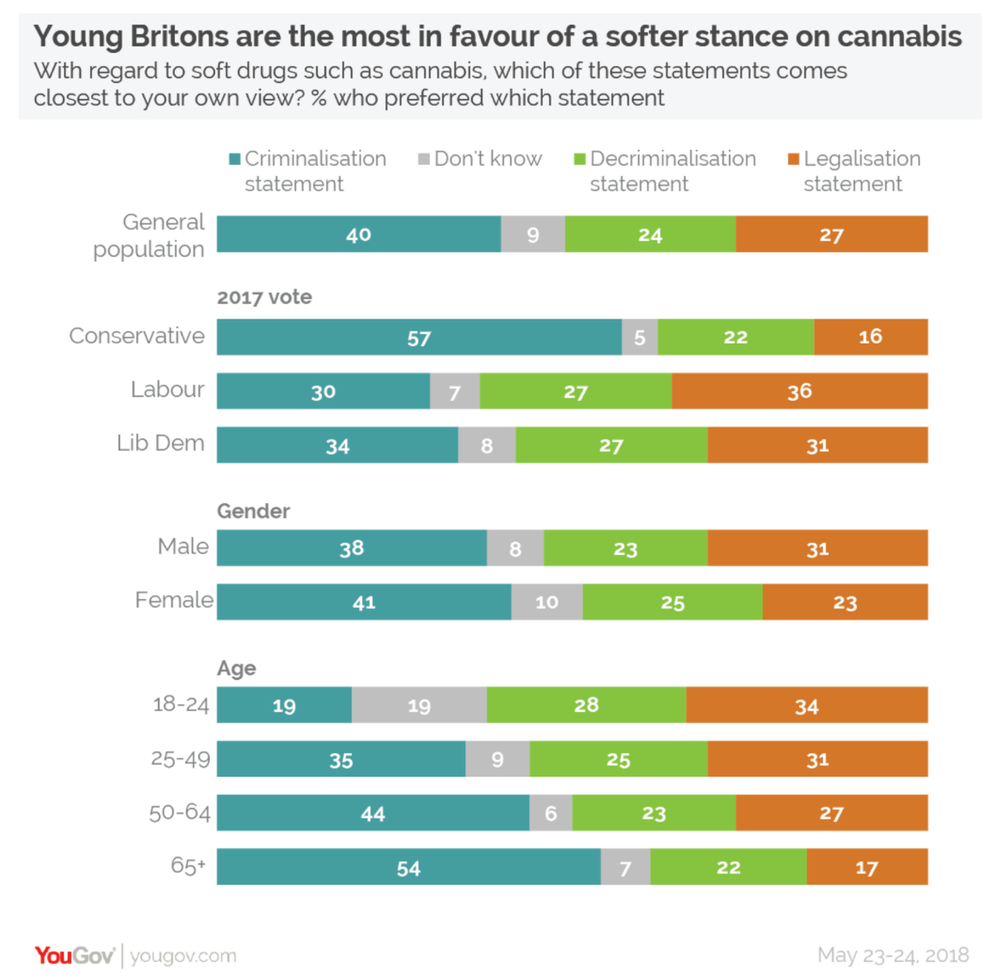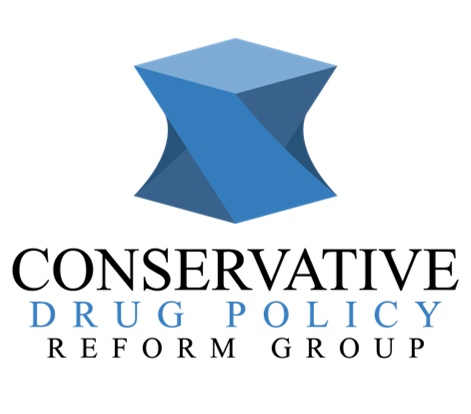THE ISSUE
In 1971 President Nixon declared a ‘war on drugs’. The logic of this war was simple: drugs are harmful so they should be illegal and those who produce, distribute and consume them are evil so they should be punished.
Fast-track half a century forward and we find hundreds of thousands dead, countless affected by drug crime directly or indirectly and countries spending billions of pounds, on police, health and criminal justice resources. The question is, to what end? Despite all the resources committed, there is undoubtedly a vibrant and extremely successful criminal drug market where drugs are easily accessible with generally decreasing street value.
Many now argue that the war on drugs has failed, indeed some suggest we are managing a global calamity. Last year Mexico recorded a shocking 29,168 drug violence related murders[1] and the United States, where two-thirds of the 63,600 drug overdose deaths in 2016 alone involved an opioid[2], is facing a shocking opiate-related epidemic which is threatening to reach our shores.
This global issue impacts the UK. Here, 4,816 people died from drug misuse in 2017, a rate of 13 people dying every day. This figure had been climbing since 2013[3] but plateaued in 2017[4]. According to a Home Office commissioned report, the failure of drugs policies cost the taxpayer £10.7 billion in policing, healthcare and crime a year, with drug-fuelled theft alone costing £6 billion[5]. Yet in April 2018 the National Crime Agency (NCA) reported a high demand for all common drug types, high profits at all stages of drug trafficking, increased production and supply and high levels of cocaine and heroin purity across the country[6].
Criminalising drugs has brought with it serious organised crime, corruption to the Police Force[7], a depressing rise in violent crime in our city centres as gangs compete for drug profits[8], the deaths of those who take drugs without fully knowing what is in them[9], and addiction as drugs become more potent and users cannot ask for help detoxing. Our drug policy has created a spiraling public health burden and is responsible for up to half of all acquisitive crime in the UK as users fund their habits[11].
To any sales manager the increase in drug use would come as no surprise. Sell highly addictive narcotics to vulnerable people, without any regulatory control, and you have just created both a highly motivated pyramid sales force and a compulsive and driven group of thieves. To fund your addiction you either steal or create your own dependent buyers; who in turn either steal or deal.
The policy objective must be to reduce both fatalities and harm. Harm to individuals, families, communities and to the country. The moral satisfaction of preaching abstinence and legislating to “just say no” needs now be evaluated against the evidence of the practical consequences of the current approach.
The CDPRG will evaluate the evidence on how shifting drug policy towards, for example, a harm reduction and public health based approach might improve outcomes. This is not new for the UK, we were once global leaders in drug harm reduction. Pragmatic former policy makers pursued this generally effective approach all the way to the passing of the Misuse of Drugs Act of 1971, introduced in the shadow of the moral certainty of the USA mandated global drugs policy.
On the supply side, it is essential to evaluate approaches that could end the dominance and power of organised crime and violent criminal drug gangs. More countries are putting governments in control, lifting the huge burdens on criminal justice systems, potentially saving many thousands of lives and reducing the abject misery that drug harms can bring to families.
To achieve this we need to create the political and civil space to facilitate and sustain an evidence-based debate which involves the electorate and educates our politicians. Recent polls around attitudes cannabis demonstrate that the British public is already ahead of politicians, particularly but not limited to the acceptance of medicinal cannabis. What is principally stopping real change is the aversion to political risk among centre-right politicians[12].

The world has already started to act. Mexico, Guatemala and Colombia successfully kick-started a global debate through the United Nations General Assembly Special Session on the World Drug Problem (UNGASS 2016). This saw Member States commit to implementing more than 100 harm reduction recommendations[13].
Opiate addiction is now one of the lead issues under consideration by the US congress. Canada is the first G7 country to have legislated to allow adult use cannabis. Portuguese politicians now boast of their success after nearly two decades of decriminalisation of possession and moving to a health-focused system. The next global meeting is set for 2019 and policy leadership from the UK’s Government is currently absent.
However there is support for change in the UK. The British Medical Association, the British Medical Journal, the Royal Society of Public Health and the Royal College of Physicians have all raised their voice for reform[14].
The Police Federation[15] and numerous Labour Police and Crime Commissioners have said that current drugs policy has failed. Most recently, mixed in with the Home Secretary’s decision to review how the UK secures medicine from cannabis, Lord Hague of Richmond, Conservative Party leader 1997-2001, called for legalisation of adult use cannabis[16]. Former Prime Minister, John Major, is supportive of a Royal Commission to assess the costs and benefits of the prohibition of narcotic drugs.
In June 2018 Ministers’ policy positions collapsed under twin assaults from the campaigns around Alfie Dingley and Billy Caldwell. There is now an opening and momentum for further evidence-based conversations around cannabis products for medical use.
If cannabis policy is improved based on evidence-based change, what is the potential financial prize? Annual savings of £0.9bn to the public purse[17] and potentially £4.5bn taxation revenue each year[18], although evidence from US tax collection suggests lower figures in the hundreds of millions. An end to the ongoing waste of money could mean many other savings accrue.
For the centre-right, the prize is a return to values of personal freedom and personal responsibility and sensible modernisation to attract younger generations (the evidence from the above graph is clear). But the most important prize is a substantial decrease in harm to young people and the many senseless deaths.
“Just say no” has given half a century of moral satisfaction to supporters, it is now essential to study the evidence and assess the cost.
References
[1]https://www.theguardian.com/world/2018/jan/21/drug-violence-blamed-mexico-record-murders-2017
[2]https://www.cdc.gov/drugoverdose/epidemic/index.html
[3]https://assets.publishing.service.gov.uk/government/uploads/system/uploads/attachment_data/file/628148/Drug_strategy_2017.PDF
[4]https://www.ons.gov.uk/peoplepopulationandcommunity/birthsdeathsandmarriages/deaths/bulletins/deathsrelatedtodrugpoisoninginenglandandwales/2017registrations#things-you-need-to-know-about-this-release
[5]http://researchbriefings.parliament.uk/ResearchBriefing/Summary/CDP-2017-0149
[6]http://nationalcrimeagency.gov.uk/publications/905-national-strategic-assessment-for-soc-2018/file
[7] Woods, N & Rafaeli, J S, 2018. Drug Wars. Ebury Press: London.
[8] https://www.theguardian.com/society/2018/jun/06/london-gangs-profit-drug-trade-study
[9] ’Portsmouth Mutiny Festival: Two die after falling ill’, BBC. https://www.bbc.co.uk/news/uk-england-hampshire-44269798
[10] https://www.kcl.ac.uk/ioppn/news/records/2018/february/uk-cannabis-market-dominated-by-high-potency-'skunk'.aspx
[11] https://www.gov.uk/government/publications/financial-cost-of-acquisitive-crime-caused-by-class-a-drug-users-in-the-uk
[12] https://yougov.co.uk/news/2018/05/30/majority-now-support-liberalising-policy-towards-c/
[13] http://www.unodc.org/documents/postungass2016//outcome/V1603301-E.pdf
[14] https://www.bma.org.uk/collective-voice/policy-and-research/public-and-population-health/illicit-drug-use, https://www.bmj.com/content/361/bmj.k2057, https://www.rsph.org.uk/uploads/assets/uploaded/68d93cdc-292c-4a7b-babfc0a8ee252bc0.pdf and https://www.rcplondon.ac.uk/news/rcp-supports-royal-society-public-health-report-drug-policy respectively.
[15] https://www.thetimes.co.uk/article/police-demand-rewrite-of-drug-laws-as-cannabis-arrests-slump-qgvvn9r3j
[16] https://www.telegraph.co.uk/news/2018/06/18/war-cannabis-has-failed-utterly-tories-should-consider-new-approach/
[17]https://www.taxpayersalliance.com/uk_taxpayers_could_save_nearly_900_million_a_year_in_costs_by_legalising_cannabis
[18] https://www.healthpovertyaction.org/wp/wp-content/uploads/2018/05/HPA-Cannabis-report-WEB.pdf
